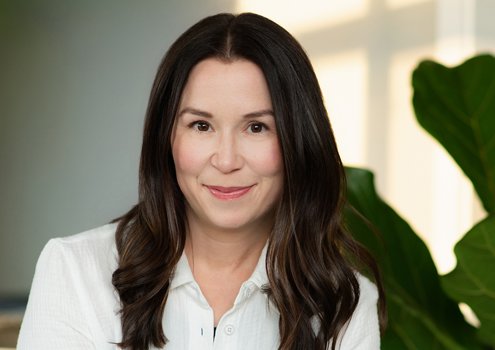Reading time: About 2 minutes
Josée Bergeron says that spending time outdoors every day is essential to her creative process….
Josée Bergeron is a French-Canadian Indigenous Métis mother of five (ages two to 17) and the founder of Backwoods Mama, a nature-based parenting community. Originally from the northern interior of British Columbia and now based in Kelowna, she brings more than 16 years of experience guiding families into outdoor living and nurturing parent–child nature connections. Recognized as an expert in raising outdoor kids, Josée holds a Bachelor of Science in Nursing (BSN), and Creative Writing Certificate with The Writer’s Studio at SFU (’24 alum) and works as a blogger and freelance writer. She is the author of Beyond the Front Door: Embracing Nature for a Happier, Healthier Family, forthcoming February 2026.
I was excited to talk to Josée about how she approaches writing.
Q. Roughly how much time do you spend writing every day?
This varies greatly! As a mother of five, some homeschooled and some in school, life is unpredictable and often chaotic. In recent years, I’ve alternated between full-time writing stretches (finishing my non-fiction manuscript) and periods where I squeeze in just an hour a day.
Q. What’s a simple activity or habit that makes you a better writer?
Spending time outdoors every day. Nature rests my mind and sparks creativity, grounding my writing. I also keep a notepad (digital or paper) to jot down words, phrases or ideas whenever inspiration strikes.
Q. What interferes with your writing?
So many things! From the daily chaos of mothering to waves of self-doubt that try to overwhelm me. Finding both the physical and mental space to write can feel challenging.
Q. How do you persuade yourself to sit down to write on days when you really, really DON’T feel like doing it?
I start in my mind: imagining a scene, playing with words, or brainstorming solutions for a tricky section. Often the barrier isn’t lack of desire but lack of time and space, so beginning mentally helps me bridge that gap.
Q. Is there a particular motto or saying that you’ve found helpful for writing?
“The pen is mightier than the sword.” ~Edward Bulwer-Lytton
My work invites readers to consider new perspectives, whether exploring parent–child–nature connections in Beyond the Front Door, sharing Indigenous viewpoints in my freelance pieces, or tackling climate crisis themes in YA fiction. I write for hope-filled change, believing words can be more powerful than swords.
Q. Which stage of the writing process do you enjoy the most: researching, writing or editing/rewriting and why?
I love researching! It takes me back to my university days, when I thrived on deep dives. The only downside is getting lost “in the weeds,” which can stall the writing itself. I also love the act of writing, weaving research into parenting advice or building new worlds in YA fiction.
Q. What’s one of the best books you’ve read (either fiction or non-) in the last five years?
East of Eden by John Steinbeck. I read it in a book club a couple of years ago, and it still lingers with me.
Q. What book(s) are you reading right now?
I have a habit of reading more than one book at the same time. Right now I’m reading: The Marrow Thieves by Cherie Dimaline; The Secret of Pembrooke Park by Julie Klassen; The North-West Is Our Mother: The Story of Louis Riel’s People, the Métis Nation by Jean Teillet; The Great Derangement: Climate Change and the Unthinkable by Amitav Ghosh.
Q. What do you think is the biggest misperception that new writers have about the act of writing?
Many new writers assume that great writing arrives effortlessly, as if words magically appear on the page. In reality, writing — like any other skill — demands time, effort, and persistent practice, much like mastering an instrument. Some days it flows; other days it feels like a slog. That’s completely normal. What matters is showing up and keeping at it.


